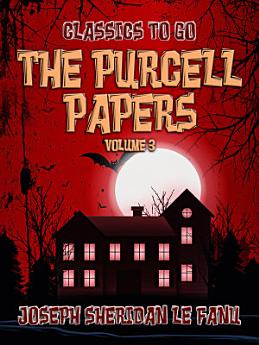The Purcell Papers — Volume 3
мар 2020. · CLASSICS TO GO 3. књига · Otbebookpublishing
E-knjiga
96
Stranica
family_home
Ispunjava uslove
info
reportOcene i recenzije nisu verifikovane Saznajte više
O ovoj e-knjizi
The Purcell Papers (1880) are a collection of thirteen Gothic, supernatural, historical and humorous short stories by Joseph Sheridan Le Fanu (1814–73) originally written for the Dublin University Magazine. The first twelve were written between 1838–40 and purport to be extracts from the 'MS. Papers of the late Rev. Francis Purcell, of Drumcoolagh', a Catholic priest.
O autoru
Joseph Sheridan Le Fanu (1814-1873) was an Irish writer whose mastery of gothic fiction and supernatural tales has left an indelible mark on the genre. Born into a literary family in Dublin, Le Fanu was steeped in the rich folklore and tumultuous history of Ireland, which deeply influenced his writing. He initially studied law at Trinity College but soon turned to journalism and literature, finding his true calling in the eerie and the uncanny.Le Fanu's works are characterized by their atmospheric tension, psychological depth, and intricate plots. He is best known for his novella "Carmilla," a pioneering work in vampire fiction that predates Bram Stoker's "Dracula" by over two decades. "Carmilla" not only introduced readers to one of literature's earliest lesbian vampires but also explored themes of repressed sexuality and the supernatural's intrusion into the mundane, making it a precursor to modern horror and psychological thrillers.Le Fanu's influence extends to contemporary writers like M.R. James and Henry James, who admired his ability to evoke dread and suspense. His innovative narrative techniques, such as unreliable narrators and fragmented storytelling, have been emulated by countless authors in the horror and mystery genres.Despite his success, Le Fanu led a reclusive life, especially after the death of his wife, which plunged him into a period of profound grief and introspection. This personal tragedy infused his later works with a somber, melancholic tone, adding layers of emotional complexity that continue to resonate with readers today.Le Fanu's legacy as the "father of the modern ghost story" remains undisputed, and his contributions to gothic literature continue to captivate and inspire, ensuring his place in the pantheon of literary greats.
Ocenite ovu e-knjigu
Javite nam svoje mišljenje.
Informacije o čitanju
Pametni telefoni i tableti
Instalirajte aplikaciju Google Play knjige za Android i iPad/iPhone. Automatski se sinhronizuje sa nalogom i omogućava vam da čitate onlajn i oflajn gde god da se nalazite.
Laptopovi i računari
Možete da slušate audio-knjige kupljene na Google Play-u pomoću veb-pregledača na računaru.
E-čitači i drugi uređaji
Da biste čitali na uređajima koje koriste e-mastilo, kao što su Kobo e-čitači, treba da preuzmete fajl i prenesete ga na uređaj. Pratite detaljna uputstva iz centra za pomoć da biste preneli fajlove u podržane e-čitače.












